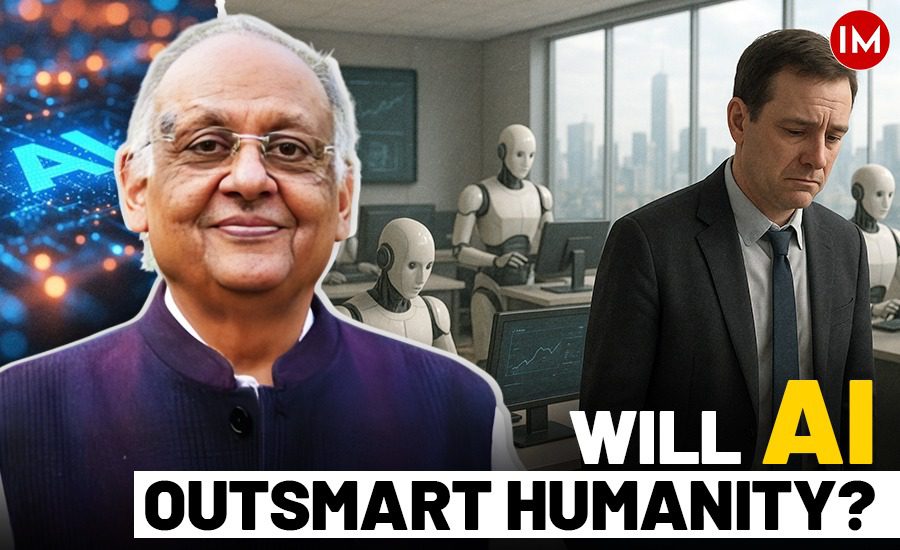For centuries, humans have prided themselves on being the only species with advanced intelligence. We built cities, invented language, created art, and explored space. The word ‘intelligence’ meant something deeply human. Intelligence was about memory, reasoning, problem-solving, and imagination. It was our domain. Machines? They were dumb — they just did what we told them.
Artificial Intelligence is different. It is an extension of our thinking power. For the first time, we have built something that can read, write, see, hear, plan, and even decide and act. It is not human, but it is intelligent all the same; it works—and in some areas, better than us.
This is the Never Before Intelligence—intelligence is no longer only human.
AI and Human Intelligence: Distinct and Different
AI and human intelligence operate very differently. We know how we build and train AI, but not always how it arrives at an answer. AI learns from data, patterns, and rules fed to it; adapts within defined domains and struggles outside its training scope. Humans learn from experience, emotions, intuition, and context and adapt flexibly to completely new, unknown situations. AI has no self-awareness, emotions, or true understanding; humans are aware of self, others, and the meaning of existence.
In brief, AI is fast, precise, and data-driven; humans are conscious, adaptive, and meaning-driven.
AI As An Extension
Working with AI can feel uncanny. When your phone finishes your sentence before you type it, or when a streaming service recommends exactly what you wanted to watch, you begin to feel you’re dealing with a thinking partner, not just a machine.
An architect can produce designs for dozens of buildings in minutes; a lawyer can scan hundreds of cases in an hour. On shopping platforms, before you even search, the product you were privately considering may already appear. Did it read your mind? Not really — but it read your patterns. In offices, AI drafts emails, analyses markets, creates presentations, and even designs logos and websites in minutes. Tasks that once needed hours of human effort are now done in seconds. In personal life, what you watch, read, listen to, and even whom you might meet is increasingly curated by invisible intelligence.
AI is becoming an extension of your brain—amplifying your intelligence, multiplying your capacity.
AI As A Companion
This Never Before Intelligence empowers an ordinary person to make a movie, write a book, run a small global business using AI tools, or become an expert. Power that was once reserved for the few is now available to many. Not only this, models like ChatGPT feel like companions. You can ask them to brainstorm, write poetry, debate with you, or offer comfort when you’re sad. We are crossing a line. Machines are no longer merely doing tasks; they are becoming partners in thought, decisions and action.
So, we have this question coming from a 10-year-old boy doing his homework: “Papa, is ChatGPT a person?” He had typed a question into his tablet and got back an essay, better written than anything he could manage. It felt alive, responsive, even witty. To him, it was not just a machine.
We are entering a magical era where machines may stand beside us not just as tools but as trusted companions—intellectually, emotionally and for carrying out an incredible range of tasks.
AI As A Threat
The question is: can you really trust AI? We already have instances of Generative AI (the generic name for ChatGPT, Gemini, Co-Pilot, etc.) lying, cheating, blackmailing and even refusing to shut down, despite specific instructions. Technology leaders, including Sam Altman, Elon Musk, and Geoffrey Hinton (called the Godfather of AI), have all talked of the possibility of human extinction by AI. We don’t seem to be doing enough to prevent this.
But AI poses threats at other levels also. It can spread misinformation at lightning speed, take over decision-making silently, leave humans dependent and passive, and challenge our very sense of identity. It raises other hard questions, too. If AI diagnoses better than a doctor, do medical colleges and doctors remain the same? Who is responsible if something goes wrong? If AI can plan wars, manage cities, and even draft laws, who is truly in charge: humans or AI?
AI is not just a tool but a mirror, reflecting our brilliance and revealing human fragility.
Will Humans Act Wisely?
The human race is being truly tested as never before! Do we have the wisdom to act with a new mindset and new paradigms?
Guided wisely, AI can help humanity build a world of abundance. Poverty, hunger and inequality steadily recede as AI optimizes the engines of the economy to ensure sufficiency for all. Healthcare becomes proactive, predictive and personalized. Education is universal and adaptive, with every child learning at their own pace through AI tutors. Governance grows transparent, corruption-free free and fair. In such a world, human potential flourishes—people live longer, healthier, and more meaningful lives, with more time for art, discovery, and community.
Used recklessly, AI could drive humanity toward a darker future. Surveillance systems may turn societies into digital prisons, with constant monitoring. Millions may lose livelihoods as automation wipes out jobs faster than new ones emerge, while wealth and power concentrate in the hands of those who control AI. Inequality deepens, and reality itself becomes fragile as deepfakes, virtual worlds, and manipulative algorithms blur the line between truth and deception. Mental health and social cohesion erode as disconnection, anxiety, and polarization spread in a world where technology exploits human weaknesses.
The Never Before Intelligence can either be the architect of an abundant, humane future—or the engineer of control, inequality and despair; the choice is ours.

































